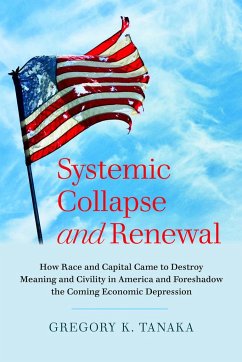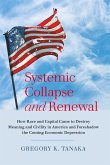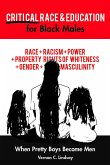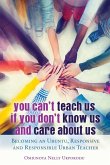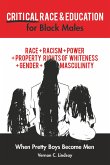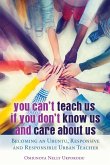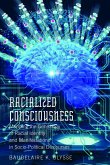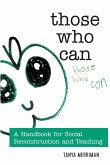In a time of great U.S. and global social unrest and unravelling, Systemic Collapse and Renewal presents a blueprint for how Americans can respond to that unrest by reclaiming and rebuilding our democracy. Part I of the book traces the deep, underlying sources of the disintegration and collapse. Through storytelling, case history, and ethnography, it examines how a small group of "elites" used ethnic diversity resulting from global migration to the U.S. as a distraction while they implemented a planned, behind-closed-doors strategy to seize the democracy and ruin the middle class. With the former representative democracy hijacked by these moneyed interests, this book demonstrates that it remains quintessentially American to believe that there is always a way out, and that the encroaching acts of fascism by "elites" can be pushed back and defeated. Tapping into this optimism, Part II of Systemic Collapse and Renewal sets forth a path for democratic rebirth. That path begins byexamining that which was taken away: the shared meanings (cultural norms, beliefs, and behaviors) that are deeply American and can be re-taught, celebrated, and once again used by Americans to build social cohesion as a country. Part II also urges a new U.S. educational and social movement based on mutual reliance-and on the healing of wounds-for an increasingly diverse country. Democratic renewal begins with the simple step of sharing our stories and our dreams about how to make a better world.
"Gregory Tanaka's piercingly personal account of the slow burn of racism, coupled with his incisive analysis of how greed has choked American democracy, renders his book as timely as it is heartbreaking. Yet Tanaka also manages to inspire with his deep conviction that out of the wreckage a new kind of collective human spirit-a true democracy of the people-might arise. A gorgeous blend of autobiographical reflection and sociopolitical critique." Mari Ruti, Distinguished Professor of Critical Theory and Gender and Sexuality Studies, University of Toronto

